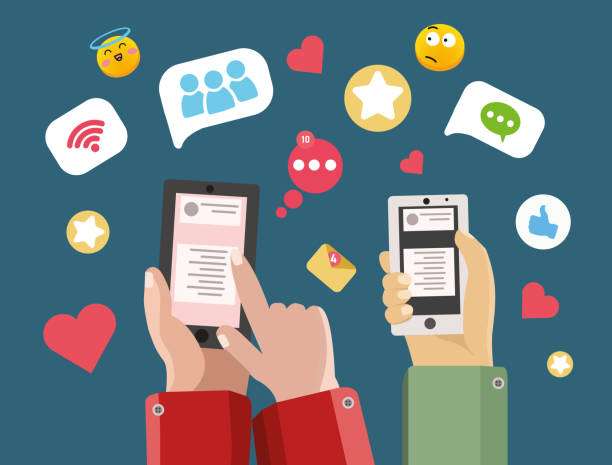Impact of Social Media on Youth: Exploring the Pros and Cons

Theme: Today’s youth have grown up with social media platforms like Facebook, Instagram, Twitter, TikTok, and Snapchat, and their lives are increasingly intertwined with these digital spaces. While social media can offer many benefits, including connection, entertainment, and education, there are also potential downsides to consider. In this article, we’ll explore the impact of social media on youth, examining both the pros and cons. Positive impact of Social Media on Youth: 1. Connection and Community-Building: One of the most significant impacts of social media for young people is the ability to connect with others and build communities. Social media platforms offer a space for young people to interact with their peers, share their interests and hobbies, and form relationships with people from all over the world. These connections can be particularly beneficial for young people who may feel isolated or disconnected from their peers in their offline lives. 2. Educational Opportunities: Social media can also be a powerful tool for education and learning. Platforms like YouTube, and Instagram offer access to a wealth of educational content, from science and technology to history and literature. Additionally, social media can provide a space for young people to engage with experts and educators, participate in online courses, and develop new skills and knowledge. 3. Creative Expression: Social media platforms offer young people an opportunity to express themselves creatively, whether through writing, photography, music, or video. These platforms can provide a supportive environment for young people to share their art and creativity with a broader audience, receive feedback, and build their followers. 4. Access to Information: Social media provides a platform for young people to access information on a wide range of topics, from news, entertainment, and lifestyle to educational resources. Platforms like YouTube, Twitter, and Instagram enable young people to learn about different cultures, trends, and world events. 5. Promoting Social Causes: Social media provides an opportunity for young people to raise awareness about social causes and advocate for change. Platforms like Twitter, Facebook, and Instagram can be used to create online communities, share information, and engage in meaningful discussions on social issues. The Negative impact of Social Media: 1. Cyberbullying: One of the most significant impact of social media for young people is the risk of cyberbullying. Cyberbullying involves using digital technology to harass, intimidate, or harm others, and it can have severe and long-lasting effects on a young person’s mental health and well-being. impact of Social media platforms can be particularly conducive to cyberbullying due to the ability to post anonymous comments and the ease with which messages can be shared and spread. 2. FOMO and Comparison: The impact of social media can also contribute to feelings of anxiety, insecurity, and low self-esteem among young people. Platforms like Instagram and TikTok are particularly prone to creating a sense of FOMO (fear of missing out) as users scroll through carefully curated feeds of idealized lifestyles, bodies, and experiences. Impact of social media can lead young people to compare themselves unfavorably to others and feel inadequate or left behind. 3. Addiction and Screen Time: Another potential Impact of social media for young people is the risk of addiction and excessive screen time. Studies have shown that excessive social media use can lead to decreased productivity, poor sleep quality, and even symptoms of depression and anxiety. Additionally, spending too much time on social media can take away from other important activities like exercise, face-to-face socializing, and academic work. 4. Distorted Self-Image: Social media can lead to a distorted self-image among young people, particularly girls. Platforms like Instagram and Snapchat, which are based on image sharing, can promote unrealistic beauty standards, leading to body dissatisfaction, eating disorders, and self-esteem issues these are the major impact of social media. 5. Exposure to Inappropriate Content: Impact of Social media can expose young people to inappropriate and harmful content, including violence, sexual content, and hate speech. This exposure can harm their mental health and well-being, and even lead to risky behaviors. How to Encourage Healthy Social Media Use: While there are potential risks associated with social media use, there are also ways to encourage healthy and positive engagement with these platforms. Here are a few tips: Set Limits: The first step towards healthy social media use is to set limits on the time and frequency of social media use. You can use various apps and tools to monitor and manage your social media usage. For example, the iOS Screen Time feature allows you to set app limits, downtime, and content restrictions. Similarly, the Freedom app helps you block distracting websites and apps. Take Breaks: Taking regular breaks from social media can help you avoid burnout and improve your mental health. You can take a social media detox for a day, a week, or a month to recharge your batteries and refocus on your goals. During your break, you can engage in other activities, such as reading, exercising, or spending time with loved ones. Be Mindful: Mindfulness is the practice of being present at the moment and focusing on your thoughts and feelings without judgment. You can apply mindfulness to your social media use by being aware of your emotions and reactions while scrolling through your feed. You can also practice mindfulness meditation to improve your mental health and reduce stress. Connect with Positive Influencers: Social media influencers can have a significant impact on your beliefs, attitudes, and behaviors. Therefore, it is crucial to follow positive and inspiring influencers who promote healthy habits, self-care, and positivity. You can also join online communities that align with your interests and values and interact with like-minded people. Create Boundaries: Creating boundaries in your social media use can help you avoid burnout and maintain healthy relationships. For example, you can avoid checking your phone during meals, meetings, or social events. You can also turn off notifications and set boundaries on who can contact you and when. Conclusion: Social media has revolutionized the way we communicate, connect, and interact with others. It
